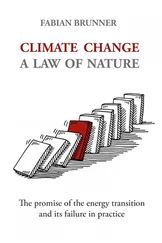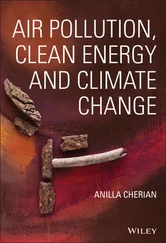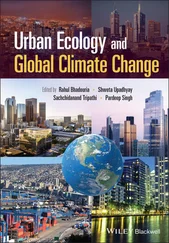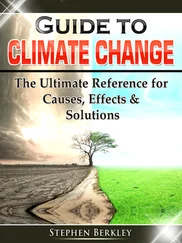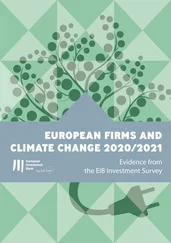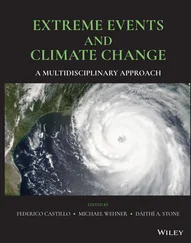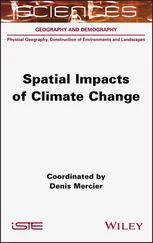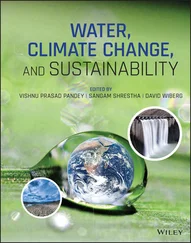Coming out of COP26 in Glasgow, for the first time climate negotiators from every country on earth agreed that everyone has to phase down coal use together. Many countries, including the UK and Canada, are part of the Powering Past Coal Alliance. Increasingly, in the context of a rapidly depleting global carbon budget, governments agree coal-burning for electricity must end. The search for finding cleaner ways to burn it is replaced with the race to replace it.
Today, oil provides about 33 percent of the world’s energy. People use it each time they fill up their cars, get on a plane, or turn on an oil furnace. Oil is also the key raw material used for manufacturing a wide variety of very common products, including plastics (from food containers to toys), artificial fibers, and a host of other goods such as hair gels, shampoo, deodorant, and dishwashing liquid.
Cheap oil has been the lifeblood of the post–World War II economic boom.
Climate change activists have been urging people to reduce their fossil fuel consumption because of the impact on global warming, but another compelling reason to cut back on oil use exists: It’s running out. There are roughly 1.7 trillion barrels of proved oil reserves left, according to British Petroleum reports. Proved oil reserves are estimated volumes of oil with an 80 to 90 percent certainty, according to the International Energy Agency (IEA). The argument about when, exactly, the world will run out of fossil fuels (particularly oil) has been going on for decades. When the Club of Rome released its famous Limits to Growth report in 1970, it said with certainty that the planet was running out of oil. The 1990s once again saw the rise of the argument that the planet would soon be out of oil. This time, the alarm was raised by geologist M. King Hubbert’s concept of peak oil. Hubbert’s peak referred to the point at which people would begin depleting known reserves, or when oil consumption is higher than oil production. Today’s peakers, as they’re known, are finding a lot of evidence that this point has passed. They argue not that Earth is running out of oil but that Earth has already run out of cheap oil.
The IEA estimates that the world economy needs to find an additional 3.2 million barrels of oil a day. Every single day, the world’s petroleum geologists, and oil and gas companies, must find new sources of oil — new oil fields and new bitumen deposits equal to 3.2 million barrels of oil — just to keep the current supply steady.
The July 18, 2007, report that the U.S. National Petroleum Council (NPC) sent to the U.S. Secretary of Energy states that 80 percent of today’s oil production must be replaced with new sources of oil or other energy sources within the next 25 years. Peakers argue that when the crunch hits, it will really hurt, causing recessions. People won’t be able to afford the gas to fuel their cars, and suburbs will suffer. But people can see it coming and can start investing in energy efficiency and smarter ways of using the oil that’s available. And using more renewable fuels could help cushion the blow of more expensive, dwindling fossil fuels. Climate change activists know that the atmosphere is running out of space for the wastes from burning fossil fuels, no matter how much longer supplies last.
Virtually everyone agrees: The age of cheap oil is over.
 All petroleum products start out as crude oil or solid bitumen. A barrel of crude is more than just a barrel of crude though. You can have sweet crude and regular (or sour) crude. (Sweet crude has lower sulfur content.) Then, the light and heavy crude classifications depend on, quite literally, how light and heavy the crude is. Whatever the type, crude oil is the straight-up oil, before anyone does anything to it. Refineries process the crude oil to make gasoline for cars, diesel fuel for trains and trucks, heating oil for homes, and jet fuel used in airplanes.
All petroleum products start out as crude oil or solid bitumen. A barrel of crude is more than just a barrel of crude though. You can have sweet crude and regular (or sour) crude. (Sweet crude has lower sulfur content.) Then, the light and heavy crude classifications depend on, quite literally, how light and heavy the crude is. Whatever the type, crude oil is the straight-up oil, before anyone does anything to it. Refineries process the crude oil to make gasoline for cars, diesel fuel for trains and trucks, heating oil for homes, and jet fuel used in airplanes.
When you think of oil, you probably imagine it shooting up out of the ground like a fountain. But those Beverly Hillbillies days of “black gold, Texas tea” are long over. Humanity has already used up most of those easy-to-tap reserves.
 Oil is starting to play hard-to-get. Although many disagree about whether humanity has hit peak oil — the point of maximum production of oil, after which the supply begins to be depleted (see the sidebar “How much oil is left?” in this chapter, for details). Companies are still making big oil discoveries, although a small fraction of the 200 billion barrels a year that they found in the early 1960s. Whenever the price of oil collapses, which it has done periodically since the 1980s, the level of investment in exploration drops off — so less is discovered. What is discovered these days can be enormous finds, but increasingly in hard-to-get places.
Oil is starting to play hard-to-get. Although many disagree about whether humanity has hit peak oil — the point of maximum production of oil, after which the supply begins to be depleted (see the sidebar “How much oil is left?” in this chapter, for details). Companies are still making big oil discoveries, although a small fraction of the 200 billion barrels a year that they found in the early 1960s. Whenever the price of oil collapses, which it has done periodically since the 1980s, the level of investment in exploration drops off — so less is discovered. What is discovered these days can be enormous finds, but increasingly in hard-to-get places.
Sometimes companies need large amounts of water to push the oil out. Look at the Athabasca oil sands in Alberta, Canada, for example. The oil industry used to consider separating the oil from this thick, gooey mixture of clay, sand, water, and oil too expensive. But when the price of oil is high, the industry pursues a very expensive process to produce a very low value product. The process of physically pressing the oil out of the sand is very water-intensive and the energy returned on energy invested (EROEI) is a very low number. (Check out the sidebar “Athabasca tar sands: A sticky situation,” in this chapter, for an in-depth look at this process.)
Offshore reserves have long been a source of oil — they’re still under the ground, but also under the water. You can find these reserves off the east coast of Canada, in the Gulf of Mexico, and, in declining amounts, off the coast of Norway. Now, however, the search for new offshore oil fields is heading for more remote and fragile areas, such as the Beaufort and Chukchi Seas. These two diverse ocean ecosystems host thriving wildlife, on which the local indigenous peoples depend.
On the ground, there has been oil industry pressure for decades to drill in protected areas such as the Arctic National Wildlife Refuge or near the Okavango Delta in Namibia. Companies are also proposing projects in the Amazon rainforest in Ecuador, another fragile ecosystem that’s also a vital part of the planet’s carbon cycle (refer to Chapter 2for more information).
No one would have considered these sources of oil a decade or so ago. But dwindling oil supplies and rising prices have changed all that. High prices, up to higher than $120 a barrel, collapsed in the last decade back down to as low as when oil hit $30 a barrel in the 1970s. In 2020, the price of oil dropped so low due to multiple factors including COVID that the price of oil actually went negative. As the world economies are recovering from COVID, the price of oil is rising again.
Natural gas is mostly methane, which makes it a little different than the other fossil fuels (check out Chapter 2for more about methane). The cleanest of all fossil fuels, natural gas gives off only carbon dioxide and water when it burns. Rotting trees and plant matter release methane if the conditions are wet and airless. Natural gas can usually be found around coal beds or oil fields. Recently, gas has taken over coal in many U.S. utilities because of the dirty process of fracking, (which is a term that refers to hydraulic fracturing). This kind of gas can hardly be called anymore. (We discuss fracking more in Chapter 2.)
Читать дальше
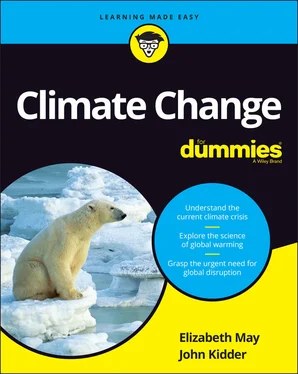
 All petroleum products start out as crude oil or solid bitumen. A barrel of crude is more than just a barrel of crude though. You can have sweet crude and regular (or sour) crude. (Sweet crude has lower sulfur content.) Then, the light and heavy crude classifications depend on, quite literally, how light and heavy the crude is. Whatever the type, crude oil is the straight-up oil, before anyone does anything to it. Refineries process the crude oil to make gasoline for cars, diesel fuel for trains and trucks, heating oil for homes, and jet fuel used in airplanes.
All petroleum products start out as crude oil or solid bitumen. A barrel of crude is more than just a barrel of crude though. You can have sweet crude and regular (or sour) crude. (Sweet crude has lower sulfur content.) Then, the light and heavy crude classifications depend on, quite literally, how light and heavy the crude is. Whatever the type, crude oil is the straight-up oil, before anyone does anything to it. Refineries process the crude oil to make gasoline for cars, diesel fuel for trains and trucks, heating oil for homes, and jet fuel used in airplanes. Oil is starting to play hard-to-get. Although many disagree about whether humanity has hit peak oil — the point of maximum production of oil, after which the supply begins to be depleted (see the sidebar “How much oil is left?” in this chapter, for details). Companies are still making big oil discoveries, although a small fraction of the 200 billion barrels a year that they found in the early 1960s. Whenever the price of oil collapses, which it has done periodically since the 1980s, the level of investment in exploration drops off — so less is discovered. What is discovered these days can be enormous finds, but increasingly in hard-to-get places.
Oil is starting to play hard-to-get. Although many disagree about whether humanity has hit peak oil — the point of maximum production of oil, after which the supply begins to be depleted (see the sidebar “How much oil is left?” in this chapter, for details). Companies are still making big oil discoveries, although a small fraction of the 200 billion barrels a year that they found in the early 1960s. Whenever the price of oil collapses, which it has done periodically since the 1980s, the level of investment in exploration drops off — so less is discovered. What is discovered these days can be enormous finds, but increasingly in hard-to-get places.